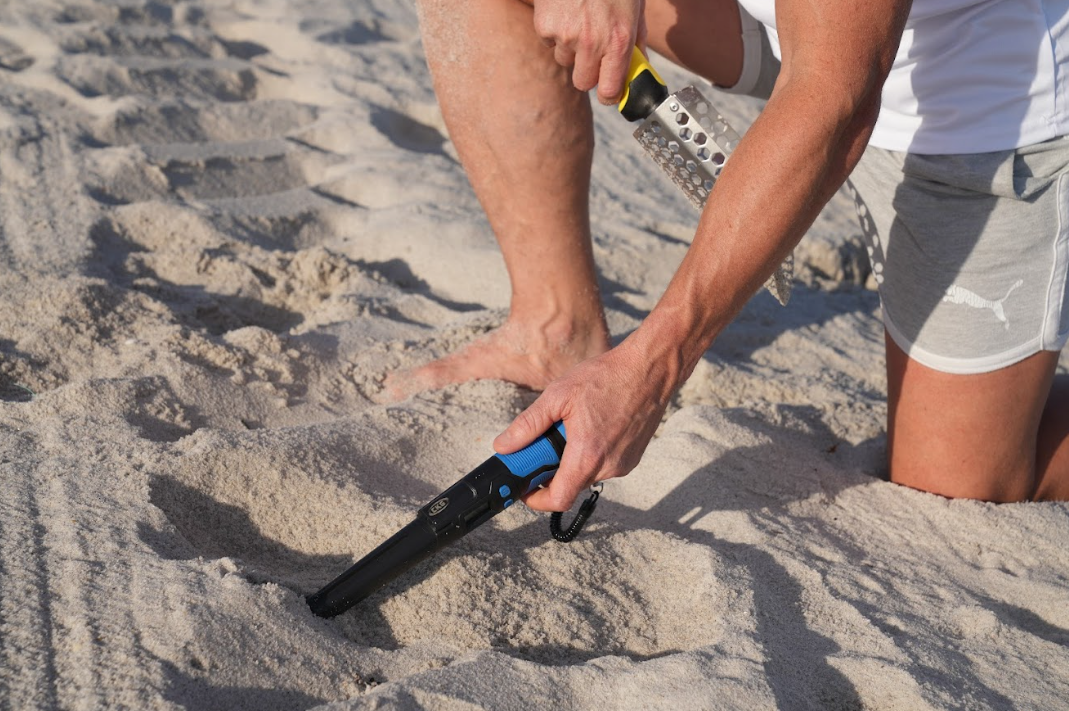How important is a pinpointer when searching for metal?
A pinpointer for metal detection is a compact, but extremely useful device. It is quite difficult to imagine an effective search for valuable finds and artifacts without its use. This device helps treasure hunters quickly and accurately determine the location of the target in the dug hole, which makes it possible to save time and effort. Many beginners initially underestimate its importance, which is in vain. However, after the first trips, they understand that with it, finds become more frequent, and the process is more convenient. Therefore, let's further consider in more detail what a pinpointer for metal detection is and what its value is.
Features and characteristics
A pinpointer is a portable hand-held metal detector that is designed to accurately determine the location of an object made of metal in the ground. Unlike full-size equipment, it works at a shallow depth of up to 10-15 cm. However, the accuracy indicators are at their best. Its main task is to reduce the time spent on excavations and minimize the likelihood of damaging the find.
Why do you need a pinpointer for metal detection?
To clearly understand the situation, imagine that the main metal detector shows a signal. And then you start digging. The find can be anywhere within a radius of half a meter from the center of the coil. This means that you will either have to take out large clods of earth and check them manually, or work with a shovel for quite a long time, risking hitting the artifact.
With a metal pinpointer detector, everything is different. After you have dug a hole, you only need to move the device inside. This will allow you to accurately determine where exactly the target is. This significantly saves time and labor. Experienced treasure hunters highlight the following advantages of this device:
-
Speed. With a pinpointer, you find items many times faster. This is especially noticeable with a large number of targets in the ground.
-
Preservation of finds. The chance of accidentally damaging a coin or artifact with a shovel is greatly reduced, because you know exactly where to dig.
-
Convenience when searching for small targets. Finds such as rings, earrings, buttons, crosses are quite difficult to find without precise localization.
Is it possible to do without a pinpointer?
Of course you can. Especially if you are a beginner and do not plan to rush " from a cliff into a quarry” and spend money on expensive additional equipment. But it is important to understand that without a pinpointer, you noticeably lose in efficiency. Inexperienced treasure hunters often complain that the metal detector shows the target, but it is not possible to find it. This is why you need an assistant for pinpoint identification.
It is also worth considering the type of soil. In loose sandy soil, you can do it without a pinpointer. But if you have to work in clay or forest litter with roots, it will be much more difficult.
What to look for when choosing a waterproof pinpointer for metal detection?
If you decide to buy a pinpointer, it is important to approach the purchase wisely. Your efficiency directly depends on the quality characteristics of this device. Therefore, when choosing, we recommend paying attention to the following parameters:
-
Sensitivity. This is one of the main characteristics. A good device should confidently "see" even the smallest targets (coins, cartridges, jewelry). The higher the sensitivity, the more accurately you can determine the location of the object.
-
Waterproof. The ideal model should withstand not only moisture, but also complete immersion in water. This is especially important for users who plan to search on beaches, in coastal areas, swamps, or simply do not want to worry about the safety of equipment during the rain.
-
The presence of vibration and sound signal. These functions make it possible to work as comfortably as possible in any situation, be it with headphones, in strong wind or even in complete silence, without disturbing others.
-
Dimensions. The pinpointer should be lightweight, fit comfortably in the hand and be quickly removed from the case. A good holster will provide quick access to the device.
It is also recommended to consider the type of power supply that will be most convenient for you, the presence of backlighting and automatic calibration.
So do you need a pinpointer?
If you plan to search on a regular basis, you not only need it, but you must. This is not a luxury at all, but a necessary tool that will help you save time, effort and increase the efficiency of the search. Even one extra artifact found with its help can fully pay for the purchase. However, if you are just trying yourself in this hobby, you can safely start without it. After the first successful outings, you yourself will feel when the time comes to add a pinpointer to your arsenal.

